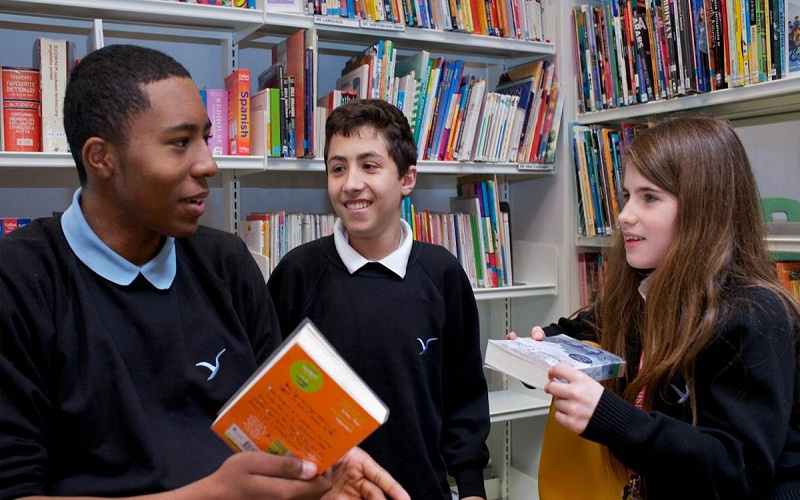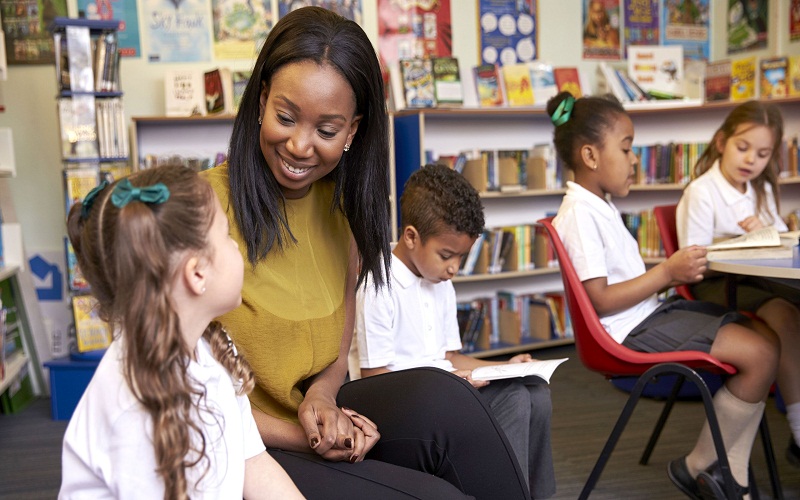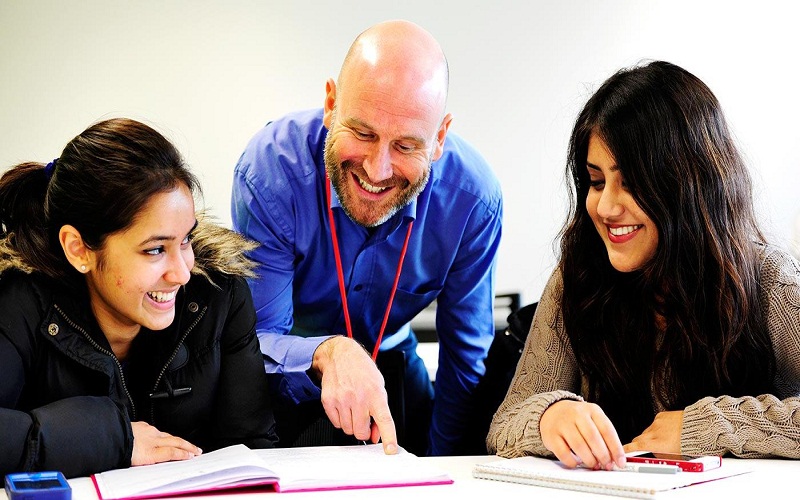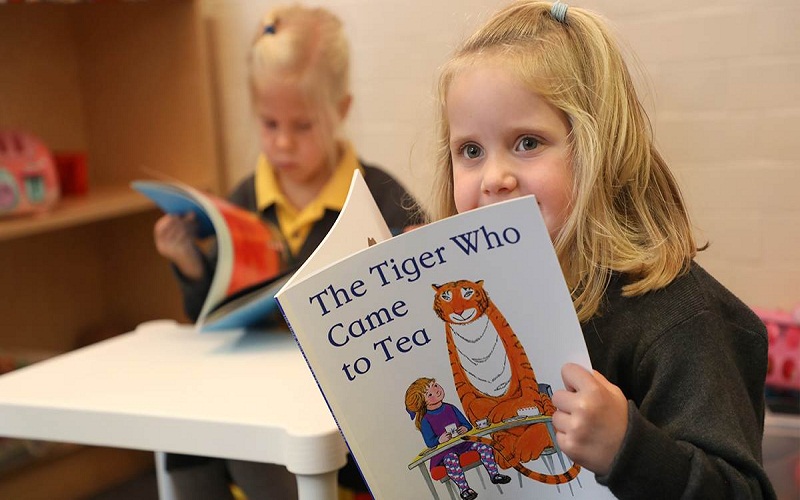As we have seen, accompanying children in general, and reading pleasure in particular, can take a few years. We do not know exactly what the result will be, but we do the best we can, with reading and everything else! If we look around us, we will see that, fortunately, we are not alone …
The booksellers can encourage your reading pleasure

The Law of Reading , Book and Libraries (10/2007 of June 22) determines that “Any person who publishes, imports or re-imports books is obliged to establish a fixed price for sale to the public […] regardless of place in which the sale or the procedure or economic operator through which the transaction takes place “and also clearly specifies the exclusions and exceptions to the fixed price. Read more: The most absurd mistakes in school textbooks
Therefore, when it comes to choosing, what counts is to opt for a bookstore in which we feel comfortable, although we have to go through several until we achieve it. And our criterion of selection will probably be the reception given to the children: if they look with impatience at their avid little hands, it is not a good sign. In a bookstore, you can always order a book that we have heard about in a magazine or on the radio, or let yourself be guided by the good advice of the bookseller. You can enter with a vague idea (“something like …”, “a book for a child that …”), and go out with what we were looking for … or also with empty hands. But the time of traversing and browsing some books or asking for advice or information to the bookseller is never wasted time.
When the children grow up, they often manage to make us go and buy the books they ask for at school: “La Celestial, for tomorrow, if not, I’ll take it!”. And we, as good parents, galloped for the book at lunchtime … As if your teacher had not asked for it three weeks before! Theoretically, the best thing is for the boys to manage themselves, to get used to going to the bookstores (especially if the bookseller knows them since they were little), that these places frequent, where only good things can happen to them. Keep reading https://rewardprice.com/business-online/online-content-is-also-a-great-help-for-traditional-commerce/
The librarians

Apart from the professionalism of the librarians who attend them, the great advantage of libraries is the gratuity. They allow us to approach, without being burdensome, authors who do not know well and who might not like us. It also makes it easier for children to choose books at their own pace. And they give us the opportunity to ask for advice from reading experts. Today it is difficult not to have a library near home. Most also have Internet access, DVD, and CD loan and, sometimes, even exhibition, conference or screening rooms. Read more: Admission to Universities 2018: What Do Applicants Need to Know?
The teachers

Regardless of their major or minor formation in children’s literature and their experience in this area, a good number of teachers are also fathers and mothers who ask the same questions as we do. It is not a waste of time to go and see them and share them with our doubts. They may not have miraculous solutions either, but they will certainly be understanding in the face of our concern. And sure, knowing the personality and level of each student can give us a few references of books that you might like to read our son in particular.
Magazines reading pleasure
Very different from books, journals are framed in temporarily, and their readers are constituted in groups: around the same passion (nature, comics, news, the story …) or the same generation (per-readers, first autonomous readings, adolescents …). The press gives priority to short ‘forms’ (sections, text blocks …) and creates a direct link with its readers. As editor-in-chief of a ‘reading’ magazine (which has an unpublished story as its main section every month), I am convinced that putting a magazine of this type in the hands of a young reader is an unparalleled way to help you enter the world. world of reading. Magazines, of course, do not replace all the readings, but often lead gently to them. That’s why all libraries have them available to children.
Mouths and ears
At the beginning of the 1980s, all teenagers and per-teens began to read like crazy the interactive books of the Choose Your Own Adventure collection. Ten years later, teenagers and twins were dedicated to reading with the same interest the books of Nightmares, fantastic novels of fear and science fiction. And, after another decade, teenagers and per-teens jumped on Harry Potter and grew up with him … Those three great phenomena of reading have one thing in common: they have been chosen by the readers themselves, making “word of mouth” among them the most powerful means to ensure editorial success. Suddenly, reading pleasure is no longer an adult matter, but a children’s adventure.
Since then, word of mouth has changed its mods operand, taking advantage of the development of the internet. But nothing prevents us from practicing the most archaic form of this ‘sport’: take a look at what the children’s friends read, talk about it with other parents, see the books that are given at birthdays, get information in bookstores, through the librarians.
Authors to meet their readers

Book fairs, presentations in specialized bookstores, school meetings …, the authors of children’s and youth literature have never moved so much. They are invited to a school, and the children have had (almost by obligation) to read their book beforehand. In these experiences, sometimes there are bad times: a class that does not collaborate, an author who strives just the essential … But most of those encounters give wonderful moments: discovering that an author is someone who is alive; feel something special when you read your text out loud; read his book in one go before he comes and knows that reading pleasure another of his books is going to be like meeting an old friend …
School libraries
Halfway between the classroom library and the public library, there are the libraries of schools, which have been gaining more relevance and development in recent years. The same Organic Law of Education, in its article 113, includes the obligation that every public school has a library that facilitates student access to information in all areas of learning and contributes to the promotion of reading pleasure. So these spaces are not just dedicated to doing work and orientation issues, but they also respond to the most personal reading wishes of the students. They have the great advantage of being located in the centers themselves and, therefore, can be used during school hours.
It may like also: http://www.prforeducators.com/teach-child-happiness/


